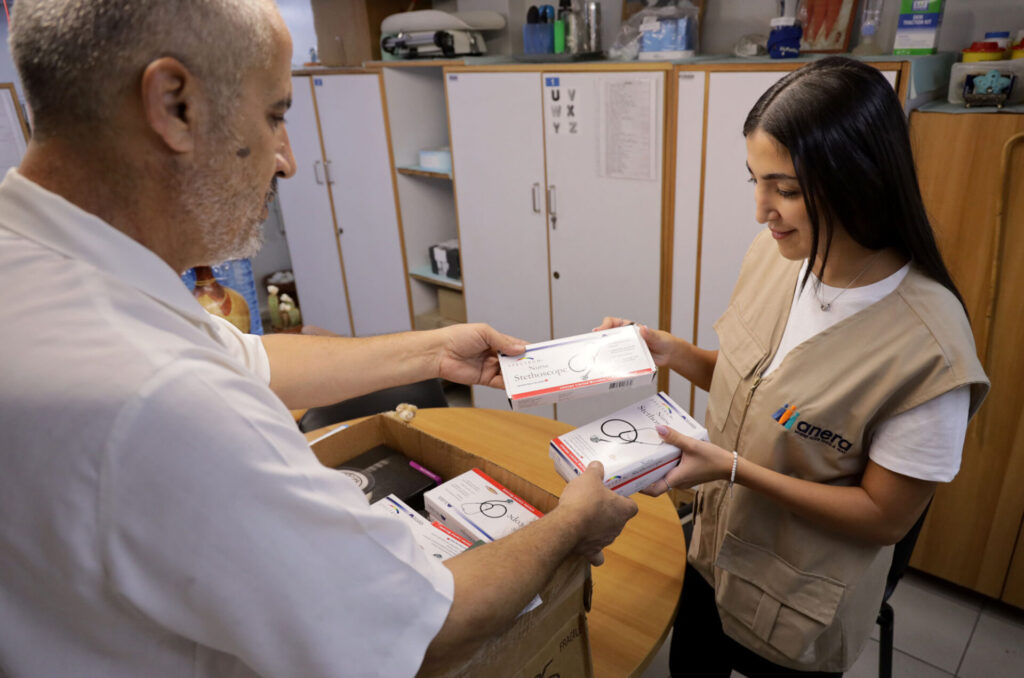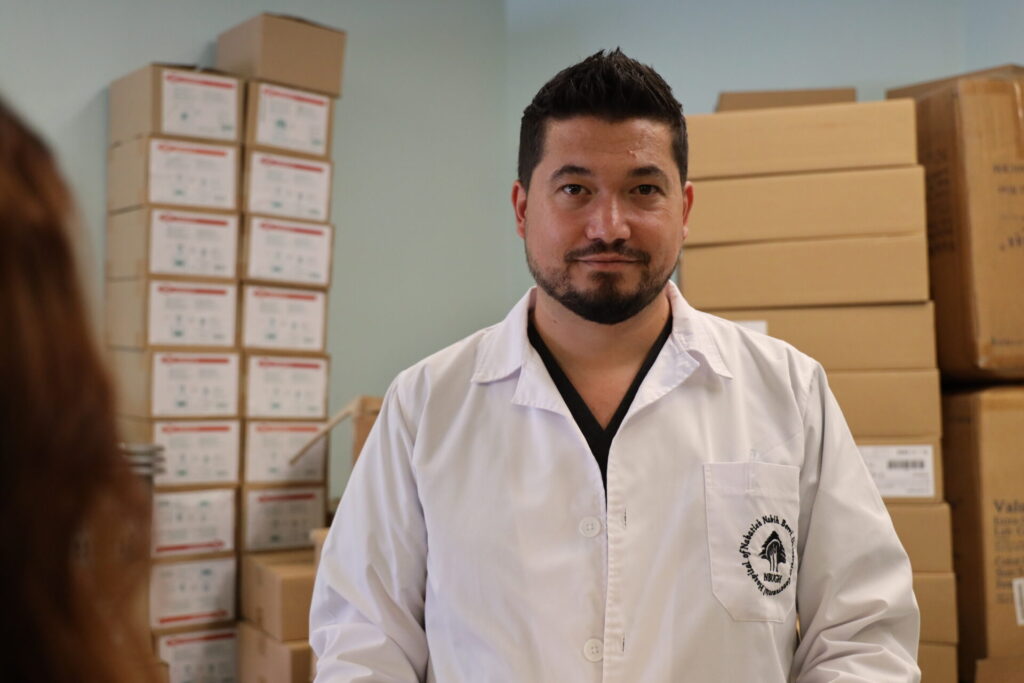Jan, 2017
When 10-year-old Lea complained of difficulty breathing, her mother took her to the clinic close to their house in the Mousaitbeh neighborhood of Beirut.
“This wasn’t the first time Lea experienced this, but it was the worst. She was coughing heavily, too,” said her mother Noha Shamieh.
Lea has been suffering from allergies since birth. She’s taken a slew of different medicines, including cortisones, without much effect. “Some doctors mentioned Lea’s allergies will improve as she gets older, but she’s still suffering from allergy attacks,” Noha said.


The average concentration of particulate matter in Beirut’s air exceeds WHO limits by an astounding 150-200%, and is partly caused by conflict in the Middle East.
Mousaitbeh is a crowded area of Beirut that has been heavily impacted by the city’s rising air pollution. The average concentration of particulate matter in Beirut’s air exceeds World Health Organization limits by an astounding 150-200%, and is partly caused by conflict in the Middle East. The high level of Beirut air pollution causes allergic respiratory symptoms like dry cough and bronchitis.
“The quality of the air we breathe definitely affects Lea’s case,” said Noha. “But we can’t move because our life, work and schooling are all in Beirut.”
Donated Zirtek Combats the Effects of Beirut Air Pollution
After their first visit to the Development Services Center of Mousaitbeh, the doctor prescribed Zirtek. “Just couple of days after taking the medicine, Lea’s condition improved a lot. She can breathe comfortably now and her cough has really died down,” her mother said.
The Zirtek syrup that relieved little Lea’s symptoms was part of an in-kind medical donation from International Health Partners. Anera distributed thousands of medicines to dispensaries around Lebanon to be available free of charge to underprivileged community members. The medicine was donated in-kind by International Health Partners and the shipment was made possible through contributions from the Zakat Foundation.


“The quality of the air we breathe definitely affects Lea’s case. But we can’t move because our life, work and schooling are all in Beirut.”
The Development Services Center is a social center governed by the Ministry of Social Affairs in Lebanon. It includes a dispensary for health services and psychosocial services. The small center serves more than 900 people each month. Over one-third of the patients are Syrian refugees.
“Many people come to this clinic because they know we have medicines for seasonal conditions, like allergies,” said Iman Sleiman, the director. “These donations are a great support to the dispensary. Over-the-counter drugs like Zirtek are in high demand."
“Seasonal allergies are very common in Lebanon in the autumn and spring. We see many cases like Lea’s,” said Fida Zaiter, pharmacist at the Development Services Center. “Unfortunately we are often out of Zirtek. Then we have to direct patients elsewhere or pay for it from local pharmacies,” she added.


